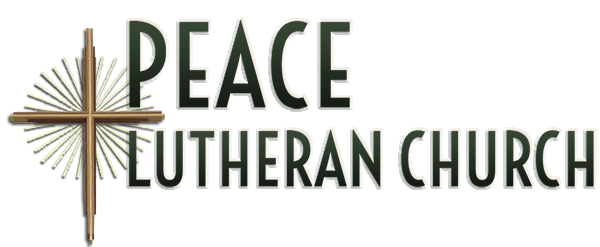The 22nd Sunday After Pentecost—A
Pr. 27; Lectionary 32 • Thank Offering Sunday
Dear God: Is the Pastor a friend of yours, or do you just know him through the business? Donny
Dear God, How did you know you were God? Who told you? Charlene
Dear God, Is it true my father won’t get in Heaven if he uses his golf words in the house? Anita
Dear God, My Grandpa says you were around when he was a little boy. How far back do you go? Love, Dennis
Dear God, Did you mean for giraffes to look like that or was it an accident? Norma
Dear God, Please send Dennis Clark to a different summer camp this year. Peter
Dear God, My brother told me about how you were born, but it just doesn’t sound right. What do you say? Marsha
TEACHING POINTS:
- “A wedding is a wedding” even in Jesus day.
- This story isn’t about a wedding as much as it is about our journey toward the “wedding banquet” of eternity.
- The key focus is being prepared—having enough “oil”.
- How are we prepared?
- the “oil” of worship; the “oil” of prayer
- the “oil” of study; the “oil” of generosity
- the “oil” of service
- We continually “fill” our “lamps”/lives with the “oil” of God’s spirit to be ready for every encounter with God.
A wedding is a wedding. No matter the culture, religious persuasion or the setting. A wedding is a wedding. In the pasture or the cathedral; an intimate family affair or a gala event; on horseback (yes, I did have one of those) or on a Hawaiian beach (no, I haven’t had one of those); in tuxes and gowns or shorts and polo shirts—a wedding is a wedding.
In Jesus day, a wedding was a wedding too. After the “engagement” there was a formal religious ceremony in the bride’s home. After that was all over, there was the wedding banquet (feast), generally at night, at the house of the groom. It generally lasted seven days and could take place right after the ceremony or weeks later. The bridegroom would come to get his bride and they would walk together. It was an elaborate affair that cost a lot of money. It was, therefore, a social event to which their friends were anxious to attend. The bride and the groom walked down the street and their bridesmaids would take part in the ‘welcoming ceremony’ by lighting the way with lamps held by the wedding party. It would be a major faux pax for anyone in the wedding party not to be by the road ready to welcome the bridegroom and bride.
That helps us a little in understanding parts of the story. But Jesus doesn’t tell this story to make comments about wedding traditions or to cite some pitfalls that can come for the wedding party.
Jesus tells this story to speak about the meaning of our life journey, our grand anticipated union with the Bridegroom (Jesus) at the “wedding banquet” of eternity. You know that the Bible is full of these images of the “feast of victory”, the wedding banquet, the Groom coming down out of heaven to meet his Bride, the church (Revelations 21:2). This story is about being ready, expecting, being prepared for this grand day of meeting our Savior.
To visualize the context, know that this saying is between “Palm Sunday” and “Maundy Thursday” in Jesus’ ministry. And it is recorded in a long section, several pages in my Bible, where Jesus speaks about end times, signs of the end and dealing with the end.
Now, know that in our reading cycle, the selections of the readings for the next while are incredibly important. You see, we are in the cycle called, “Pentecost.” Pentecost has to do with the “life of the church.” It has to do with how you and I live. How we live with the transforming power of God under the power of the Holy Spirit. They have to do with our lives of faith from Baptism to eternal life.
That last statement is key: from baptism to eternal life. You see, it is key because as we wind down the cycle of Pentecost we begin to focus more and more on eternal life, upon the second coming of Jesus, upon our own deaths and passage to our eternal home. This is not accidental. This is deliberate. It is so we don’t miss any of the steps in the cycle of life.
So, that means, these last days of Pentecost, and even into the weeks before Christmas Jesus teachings will have to do with preparation, with readiness. Even Advent, pre-Christmas preparations, are as much about preparing for the grand promised second coming of Jesus as they are about our celebrations of His first coming. (If you know one of our Confirmation Students, ask them to speak to you about the “Circle of Life”—our cycle of remembering the grand and glorious story of God’s love and mercy, or our salvation. Hopefully, they’ll be able to tell you about this meaning.)
So, then, give all of that, what’s up with this story? I believe it has to do with the preparedness we necessary to “keep our lamps burning” as we live and glorify God awaiting the Bridegroom’s arrival to lead us to the “wedding banquet” of eternity. I believe it has to do with keeping the oil replenished so that our faith is “burning strong” right up to the end and that we have daily renewal for the journey.
Some commentators suggest that the lamps that were common in Jesus’ day required having the oil replenished frequently, maybe even as frequently as every 15 – 30 minutes. That idea is critical to my thinking on being prepared.
I have the sense that “being wise”, as Jesus speaks of it, is about continual effort and work. It is ongoing. What has been done in the past is not be enough to meet current need. What has been done yesterday last month or last year is not be enough to sustain.
As believers, as those who follow Jesus in this life and wait for the life to come, have a need to keep the oil replenished to keep the “light” of faith, the “light of Christ” burning. We have a need to keep connected with Jesus and the “oil that never runs out” to have a light burning, a life burning, and maintaining a state of preparedness.
The key is “having enough oil”. How do we have “enough oil”? How do we connect with the source of faith and life that never runs dry?
The disciplines of faith and discipleship apply here. Our discipleship keeps us connected to the source of the power of the spirit that never runs out.
Our worship life, regular, weekly, public, puts us in a direct encounter with the living God. God’s grace is revealed in word, sacrament, praise and fellowship. The oil of grace and power is poured out. Our tanks are refilled and we are renewed for the journey.
Our prayer life, daily, maybe hourly sometimes, is a source of the Oil of joy and life that keep our spirits attuned to God and our life focus on the leading power of God. Our spirits are renewed and the oil of joy is poured out.
Our attention to the Bible, to scriptures, to the study of God’s word is also a source of replenishing oil. Our Bibles are meant to be opened, read and studies. Martin Luther’s translation of the Bible into the common language has set the tone for everyone to have access to God’s written word. It isn’t always a matter of completely “understanding” what is written, but of placing ourselves in the presence of the God who comes to us in His word.
God’s gifts of oil, faith and life never run dry. In our generosity, our lamps are filled. You know that the advice for someone who is turned in on themselves is to get out and help somebody. Focusing on the other in generous sharing gives us more than we give, usually. We are filled.
Service and witness work the same way. Outside of ourselves we are renewed and filled with the oil of God’s spirit, the light of life that only God can give, and are connected to a source of blessing that never runs dry.
Jesus parable is a parable for life. Jesus invites us to be prepared for His coming, for the great “wedding feast” of eternity. Our preparedness is dependent on continually “filling” our “lamps”/lives with the “oil” of God’s spirit and the gift of life/faith.
Amen.


